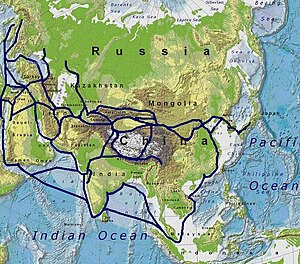
In international trade, market access refers to a company's ability to enter a foreign market by selling its goods and services in another country. Market access is not the same as free trade, because market access is normally subject to conditions or requirements (such as tariffs or quotas), whereas under ideal free trade conditions goods and services can circulate across borders without any barriers to trade. Expanding market access is therefore often a more achievable goal of trade negotiations than achieving free trade.[1]
Market access concessions and limitations to market access differ greatly between trade in goods and trade in services. While market access for goods mainly involves measures at the border such as customs duties or quantitative restrictions, market access for services relates more to the application of domestic regulation behind the border. Moreover, in a world of proliferating regionalism, preferential market access for goods and services also have distinctive characteristics from non-preferential market access within the multilateral trading system.[2]
- ^ "Market Access". Investopedia.com.
- ^ Kang, Jong Woo (2015). "The Noodle Bowl Effect: Stumbling or Building Block?" (PDF). ADB Economics Working Paper Series (446) – via Asian Development Bank.